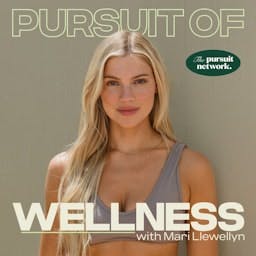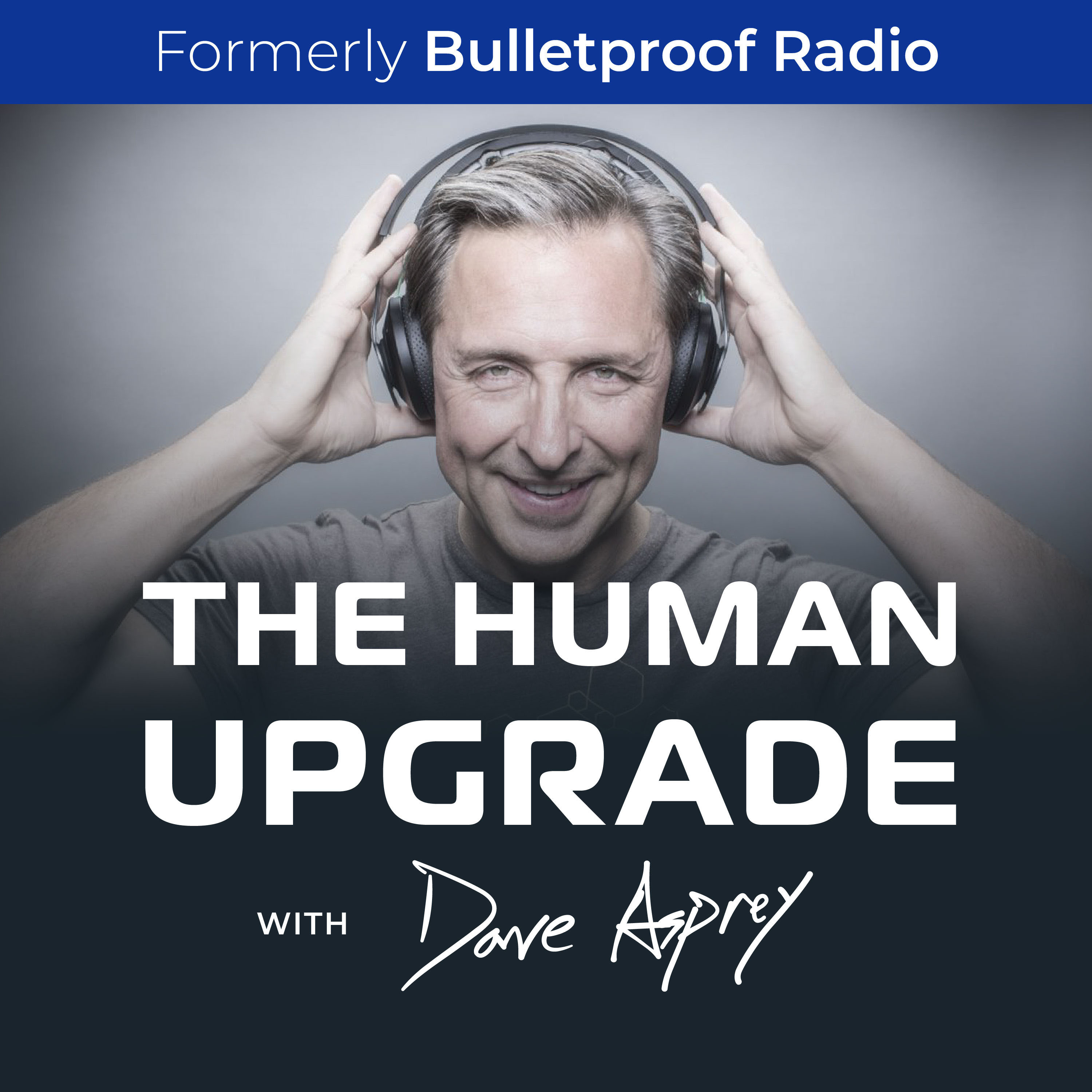
The ModernZen Collective Podcast
Are you ready to elevate your mind, body, and spirit? Join Lizzy Sutton and Nikki Sucevic on The ModernZen Collective Podcast, where conscious women come together to explore the art of living with purpose, balance, and spiritual grounding. Whether you're a single professional navigating the pressures of urban life or a stay-at-home seeker yearning for deeper connections, this podcast is your sanctuary for holistic practices and personal growth.
Tune in as Lizzy and Nikki delve into ancient wellness secrets, expand your consciousness, and help you discover your true life purpose. We tackle the challenges of work-life stress, the quest for inner peace, and the journey of rediscovering who you truly are, to be able to live in alignment. Here, we embrace the unconventional, celebrate community, and empower you to step beyond societal norms to find balance, joy, and holistic living.
The ModernZen Collective Podcast is here to guide, educate, and connect women ready to transform their lives. Discover a world where balance, joy, and holistic living are within reach. Connect, grow, and thrive with The ModernZen Collective—your space for holistic wellness in the modern world.
The ModernZen Collective Podcast
The Truth About Sleep & How to Improve It Holistically w/Rebecca Glick
Sleep isn't just a luxury—it's fundamental to our wellbeing yet remains one of the most overlooked aspects of health in our busy modern lives. Functional Wellness Coach Rebecca from Nefesh Living joins us to for Part 3 of her mini-series with us to reveal why quality sleep serves as the cornerstone for cellular regeneration, immune function, weight management, energy regulation, and cognitive performance.
Discover the surprising truth that your sleep quality actually begins the moment you wake up. Morning sunlight exposure within those first crucial 15-30 minutes helps regulate cortisol levels and establishes healthy circadian rhythms that prepare your body for restful sleep later. We explore how meal timing, movement patterns, and evening routines collectively create the conditions for deep, restorative rest.
Blue light exposure emerges as a significant disruptor in our discussion. Those screens we're all attached to are literally signaling to our brains that it's still daytime, making it harder to wind down naturally. Rebecca shares practical strategies for creating personalized bedtime rituals that help transition your body into sleep mode, while acknowledging that individual factors like caffeine sensitivity vary widely from person to person.
While most adults need 7-9 hours of sleep nightly, we discuss how to determine your personal sleep requirements by tracking patterns and energy levels. Beyond just feeling rested, quality sleep provides profound benefits for cellular turnover, toxin release, brain health, and overall longevity—making it one of the most powerful anti-aging practices available to us.
The conversation closes with a compassionate reminder that consistency matters more than perfection. Life happens, schedules get disrupted, but returning to healthy patterns is what ultimately creates the foundation for vibrant health and wellbeing. Ready to transform your relationship with sleep? Listen now, and discover how small adjustments to your daily rhythm can dramatically improve your quality of life.
Find out more about Rebecca & her offerings in the MZC Practitioner Collective & connect with Rebecca on Instag
Thanks for listening to The ModernZen Collective Podcast.
🔮 Ready to step deeper into this work? Our monthly bonus subscription unlocks expanded teachings, guided practices, exclusive interviews, and channeled insights to support your spiritual journey.
📘 Explore our Free Library, where you can access monthly Listener Reflection Guides that pair with our podcast conversation episodes—your space to go deeper, journal, and integrate what you’re learning.
💫 Meet our curated Collective of holistic practitioners—trusted experts who can support your growth and fast-track your transformation through personalized, aligned modalities.
✨ Want to stay connected between episodes? Join our email community to receive first access to new offerings, seasonal challenges, and exclusive wisdom from The ModernZen Collective—straight to your inbox.
🌿 Follow us on Instagram @modernzenco & personally at @lizzysutton.co &...
Hi, I'm Lizzie and I'm Nikki. Have you ever felt that your life was missing purpose, joy or deep connection? Welcome to the Modern Zen Collective podcast, where we embrace holistic living for a joyful, purpose-driven life.
Speaker 1:In this podcast, we'll explore holistic practices, consciousness expansion and spiritual alignment. We will dive into personal development practices that connect mind, body, spirit and share secrets that ancient cultures have known for centuries. Together, we aim to guide, educate and connect individuals eager to transform their lives.
Speaker 2:Join us weekly on the Modern Zen Collective podcast and elevate your mind, body and spirit. And now on to today's episode.
Speaker 1:Welcome back everyone to another episode of the Modern Zen Collective podcast. I'm Nikki and we have an amazing guest back again. Thanks, Rebecca, for being here again. Rebecca had an amazing episode with us where we spoke about toxins and talked about how to look for them in your home, release them, and it was a wonderful episode. We will link it below in our show notes.
Speaker 1:Today we're going to talk about sleep, the importance of sleep, why it's important, how we can get better sleep, etc. And Rebecca, who has her own functional wellness coaching business here in Chicago North Shore, where I am as well, is helping women, midwomen in their midlife with their children, and things like that that are helping them to feel more alive, more energized, et cetera. And that really comes down to so many factors from a functional standpoint, and today we're going to talk about the sleep factor. So, Rebecca, I'm so excited to have you here again talking about sleep because it is a factor. It is something I hear a lot of people talk about where they either suffer from insomnia which those words go together a lot I suffer from insomnia, that happens a lot or they get disruptive sleep they can't fall asleep, what is it? Et cetera. So I'm really excited today to talk a little bit about what that means and how we can look at it. But welcome back, Thank you. Happy to be here again.
Speaker 3:Yeah.
Speaker 1:So I think we all know we need sleep. Obviously it's something that we need, like, obviously it's something that we need. And what are the important benefits of getting a good night's sleep? Why is it an important part of our process for us to, you know, fully function as a human here on planet Earth?
Speaker 3:Sure, yeah, yeah, it definitely is. And I think sleep is often a very well, as you said, such an important underpinning, often very overlooked aspect of our health. You know it's easy for people to think, oh, if I'm not eating right, if I'm not exercising, I think those are kind of like the go-tos, and sleep is sort of sometimes like not even on the list, like, oh, what do you mean? Why are you asking me about my sleep? Yeah, are you asking me about my sleep?
Speaker 3:Yeah, yeah, and so, but sleep does so much for us that I don't think we often realize in terms of cell regeneration and repair. So you know things that maybe are a little off in our body, that getting into that restful sort of zone, refresh, is so key for that. It is connected to our immunity, it's connected to weight management. So if we're not getting enough sleep and our blood sugar is not regulated in the right ways, that can impact just if we're trying to lose weight, if that's our goal, and then you know, maybe more obviously, it's affecting our energy levels, our ability to focus, our mood. You know just everything that we kind of need to function in our daily life.
Speaker 1:Yeah, for sure, and it's something that I've noticed can really go on the back burner.
Speaker 1:And I know you work with moms. You know women that might have been in corporate, in corporate or full-time mom, etc. Sleep might be on the back burner, you know like and it's something that I hear often that you know not getting enough sleep and it's not really the priority. You know like it might be someone working out, and working out is a priority and eating healthy, et cetera, but the sleep part not, not so much. And so I the the importance of it with what you're saying, with you know the cell regeneration, so much that happens for detoxifying your body, getting that restful time to reset your nervous system too, because there's so much that goes along with it. And I guess my question is when you work with a woman who you know busy, either in her career or full-time mom or juggling you know multiple things and you bring up sleep, how do you help to start introduce the importance of it or start to have your clients carve in some time for that sleep, because it could feel like there might not be time?
Speaker 3:when you look at the green scheme, yeah, yeah, I mean sleep, I think is one of those things where it's easy to get a lot of, a lot of pushback or just like I just can't do it, or a lot of you know shoulds, can'ts, whatever it might be, because I think our society really rewards and emphasizes this. Go go, go kind of always on, always available, responding to emails and even as parents and moms it's you know there's no time to, you know, sometimes get other stuff done, but in the evening and that trickles in and so I get it. It's a really challenging, you know conundrum when someone says like well, why aren't you getting enough sleep or how can we get more sleep in. But I think it's really helping people recognize like that, even if we're, you know A maybe people are feeling tired and they don't have energy to get through this stuff, and so there's that mentality of sort of slow down to speed up, right.
Speaker 3:So if you actually were getting like the proper restful time at night, how much more focused, productive, energized you would feel throughout the day, that you might actually create that space and that time to get to bed earlier.
Speaker 3:Because you know it's kind of like the chicken and the egg, so when you're getting better sleep then you're able to maybe use your time and your day better, that you can get to bed at a reasonable time and you were able to kind of accomplish whatever you were trying to accomplish that day.
Speaker 3:And you know and sometimes people aren't feeling tired and that that's not an issue but recognizing that over time sleep deprivation is just you know it's, it's one of those maybe you gotta, you know you can't see it to believe it, but that it is doing more harm nervous system and giving your body that time to regenerate Dysentery issues, blood sugar dysregulation, things that you know I think in current sleep habits and hygiene when it comes to sleep and you know where might be there some room for maybe some small tweaks to experiment with and kind of take note. And I, you know, sometimes have people keep a sleep log or a sleep journal and just sort of note like when they're going to sleep and when they're waking up and maybe what kind of led into the going to bed and how they felt when they waked up. And just starting with just like gaining a little bit of awareness about what's going on in that pattern can be really eye opening in terms of you know where we might want to continue to experiment and make some changes.
Speaker 1:For sure, and what would you say? I ask you this question a lot, but what are the major things that can contribute to, you know, sleep deprivation or sleep insomnia or not getting enough sleep, etc. I know we just touched on you know someone who might be busy and just can't find the time to carve out. There's too much going on. What are some things you know from your body standpoint that we might be doing? Yeah, that could create this.
Speaker 3:Yeah, I mean I would say that a good night's sleep usually starts from the moment you wake up, right, so your body is preparing for how you're going to sleep that night from the very beginning of the day, and it's a great point, wow, you know, and you, you know, and, and yes, it's, it's also important what you're doing literally right before bed, and I can talk about that, but it really does hurt on on in the morning. Are you, um, getting outside as best you can in those first, you know, maybe 15, 30 minutes-ish. You know I'm not like a defined sleep expert, but this is just what I have learned and worked on with my clients of getting natural sunlight in the morning, because that helps to regulate your cortisol and helps to start bring it up, which is what you want. You want it to be starting to kind of go up in the morning because it's signaling to your body that it's time to get up, it's awake, it's daylight.
Speaker 3:So, getting you know early sunlight in the morning and even throughout the day when there is sunlight. You know climate, where maybe that might be more challenging sometimes it helps regulate. You know just how your cortisol and your hormones are going to. No-transcript, standard American diet Sometimes it's like something very quick for breakfast, lunch and then a huge dinner which isn't really also going to set your body up for success to get into that rest and digest mode and get a good night's sleep. So it's thinking about that and kind of. So you know movement throughout the day, all these different factors that are going to play into getting a good night's sleep and, as I mentioned earlier, as you're kind of leading into sleep, really focusing on bringing down that cortisol and kind of catching that wave and creating some type of kind of again like signal to your body that it's winding down, that it's time to kind of get into that rest mode.
Speaker 3:And what I see people struggle with the most and I'm guilty of this too is the screens and the blue light on the screens and there's tremendous data that shows that it is literally signaling into your eyeballs that it's waking time, it's not time to go to bed, it's, you know, during the day, and even if you're like you still feel tired, there's something you know internally that it's not getting those right cues, and so I really try to work with people on creating whatever wind down ritual works for them.
Speaker 3:There's not one size fits all, you know, whether it's journaling or reading or listening to music, you know something that is not looking at a screen and really just kind of having this moment that your body is saying, okay, it's time for bed, dimming the lights, doing something that is a little more restful, not, you know, sitting in your room like trying to pay your taxes or something like that you know should not be done in the bedroom. I would say so, and it makes it. It makes a big difference because sleep is not just about from what we know, just about the quantity, which I can get to too, in terms of you know what's the maybe right amount or approximate amount for people, but it's really the quality in what you're doing, as I said from the start of the day leading into it is going to impact then the quality of sleep that you get. Yeah.
Speaker 1:What you said about the walk in the morning. That's something that has truly, truly helped with my sleep and doing the walk without sunglasses so that my eyes my actual, Because if you have sunglasses on, you're triggering the idea that it's nighttime, You're kind of tricking it.
Speaker 3:You want the light to come in you want the light to come into your eyes.
Speaker 1:Don't look at the sun, but you want the light to come into your eyes. That's a whole other thing sun gazing. I need to go down that road at some point and learn about it, but protect your eyes. But that really helped me, you know, within those first 10 to 15 minutes of waking up, taking a walk when it's sunny, and feeling that and it just getting in with nature, and I believe that really helps us so much with our nervous system and with our regular each been, you know, and that was something that really really helped me. And then I also I do love caffeine.
Speaker 1:It's one of my things, my vices, and I realized that when I have caffeine after a certain time, I get more restless sleep. It's just, it's so black and white to me that I can tell if I have caffeine after. You know, like 1 pm or 2 pm around that time that when I try to fall asleep, there's no way I could have taught three yoga classes that day. I could have walked three miles, anything. I'm still up and wired because my body is pumping. So in terms of caffeine, a lot of us love our matcha, our coffee, our tea, and functional wellness, holistic wellness. What does that look like in terms of your sleep and what that does?
Speaker 3:Yeah, it's a great question. I mean, I would say again, it's sort of like individualized, right. So whatever works for each individual.
Speaker 3:I think there is data out there that you know sort of, as you said, after a certain time of day that caffeine is going to keep you up and for some people it doesn't impact them at all. So I think that's a more personal sort of like looking at what you did, that awareness of like okay, if I have this coffee or this caffeine after this time of day, I'm going to not get a great night's sleep. And so that's also why something like keeping just a really, you know, whether jotting things on your phone or a notebook, like a sleep blog or sleep diary when you're working on your sleep, just to sort of see some patterns and that might be a pattern for someone, and you know just not to say that they can't have it, but maybe it's just having it a little bit earlier, right, you know alcohol can have a big effect on your sleep too, for some people, for some people, you know, maybe it doesn't.
Speaker 3:So it is sort of it is, like you know, listening to your body and that intuition right of what's sort of working, yeah, and I think, people noticing those patterns and you know, the other thing with sleep is consistency is really key, right.
Speaker 3:So, again, to kind of set your circadian rhythm, and it's about giving your body as much kind of cues and signals as you can of wake up, go to sleep and helping that along, and sort of holding up the poster board and saying it's time for bed. And these are some of the ways that we can do that and the consistency is a big part of that too, of as much as feasible. Right, we all have things going on and things in the evening and our schedules are not always identical. But trying to keep a somewhat consistent schedule where you go to bed roughly within the same window each night and wake up within the same, you know, window each day, um, just keeps your, your rhythm and your sleep more regulated, Um you know that's what.
Speaker 3:that's what a lot of the data shows, yeah.
Speaker 1:And your body is. So. That's that routine. Your body naturally starts to wind down because that's the time window when you you know, which is great because you know at home every time, whatever you're asleep. By then you realize how your body is showing you your sleep patterns and how you've created that within you, just that intuitive connection with your body, exactly With the blocks of time or us setting aside time or having at least our closest routine. You touched on a little bit the timing six hours, eight hours routine. You touched on a little bit the timing six hours, eight hours, 10 hours. What does that look like? What does it mean? I'm assuming that's also relative per who the person is. You mean how much?
Speaker 3:sleep someone should ideally be getting. Yeah, so the guidelines say, I mean, for most adults, you know, roughly seven to nine hours is the recommended guidelines. But you're right, it definitely can vary from person to person. You know, and I do have people or I've heard oh, I'm fine with like five hours and like maybe you are, but like I would bet that your body could really benefit from a bit more. So that's like that's the rough, you know, kind of estimation.
Speaker 3:I personally know that like seven hours is not really enough for me. Sometimes. Is that what I get? Yes, but like I try to aim for eight to nine hours to feel truly rested. Some people might need more, and so that's again where it comes back to just that. You know, as we've talked about that awareness and kind of tracking, like well, how did I feel when I got X hours versus you know, nine hours or 10 hours? And there is, you know, there's I've heard sleep experts talk too that there, you know, there is that sort of finding that happy, that balance right of so much sleep that your body is like well, kind of getting confused and wait a minute.
Speaker 3:So you know, like 12 hours is probably not going to do you good or do any better so it's about learning and listening to your body and seeing what works, but roughly staying in that seven to nine range from a quantity perspective is what's typically recommended.
Speaker 1:Yeah, that makes sense Because, yeah, that's about what I get when I can get it, when I'm able to get that seven to nine. I also feel it's anti-aging. I feel like, with that cellular turnover and that time that we get when we're sleeping, that we're giving our body time to reset, rehydrate, everything. While we're sleeping we're, you know, we're releasing toxins. But I also feel I feel like I have more longevity and I feel more, you know, energetic and I feel that those anti-aging properties happen when I get more sleep, a hundred percent At that higher threshold and your brain health right, I mean cell regeneration not just in your body but in your brain, at that higher threshold.
Speaker 3:Having a really solid foundation of sleep is not the only factor, but certainly a factor in potentially supporting people's brain health and wellness.
Speaker 1:For sure Great. Well, anything else about sleep that you think our listeners would love to know that we haven't touched on?
Speaker 3:touched on. You know, I think it's that self-awareness of sort of knowing how you feel and being aware of patterns, and also recognizing that, as you said, you know you have a night out that's later with friends or out to dinner late, and so you may feel, you know, not your best that day, but you can get back on the saddle right. So don't you know, kind of let one bad day say, okay, forget it, I'm giving up on my sleep because, again, it's cumulative, it's something that you can build over time and, in general, if you can kind of stick to some consistency, stick to sort of a bedtime routine that you know lets you wind down, minimize the screens which is tough right, and I'm not perfect at that, like there's definitely days where it's just not feasible or just you know, but you know, kind of give yourself a break and then get back into your routine hopefully, I guess is what I would say and that can go a really long way in improving your sleep.
Speaker 1:Giving yourself grace. We are human for when things go up and down, for sure, yeah well, thank you, rebecca. This has been wonderful. Learning about sleep, the benefits we know that they're there, but talking a little bit more about them was wonderful. I appreciate, as always, your wisdom and knowledge and sharing it with everyone that's listening. You can find rebecca through our practitioner. Collective links to her website are on there. And then Rebecca also. How can anyone access you and get a hold of you to work with you or learn more about you?
Speaker 3:Sure, yeah, you can reach out. I'm at Nefesh, living on Instagram, or Rebecca at Nefesh. It's N-E-F-E-S-H livingcom.
Speaker 1:Wonderful. Well, thank you, Rebecca, for being here and thank you everyone for listening. We hope you get a peaceful sleep tonight and we'll see you soon. Thanks for that, Thank you, Thanks.
Speaker 2:Thank you so much for joining us today on the Modern Zen Collective podcast. If this episode resonated with you, we'd love for you to share it with a friend and leave a review. It helps more conscious women like you find our community, and if you're craving a deeper connection to your practice, we've created something just for you the Modern Zen Collective app a sanctuary in your pocket. Inside, you'll find guided meditations, soulful workshops, energy updates and intuitive channeling, all curated to support your spiritual and holistic wellness. Plus, for just $3.99 a month, you'll receive timely push notifications with astrological insights and gentle reminders to realign with your highest self. It's rooted in ritual, made for modern life and always within reach. Just head to the App Store or Google Play and search Modern Zen Collective to download the app and begin your journey with us today. And, as always, any links or resources we mentioned in this episode can be found in the show notes. Until next time, keep trusting your path and honoring your unfolding.
Podcasts we love
Check out these other fine podcasts recommended by us, not an algorithm.

Aligned Abundance: Manifestation with Emma Mumford
Emma Mumford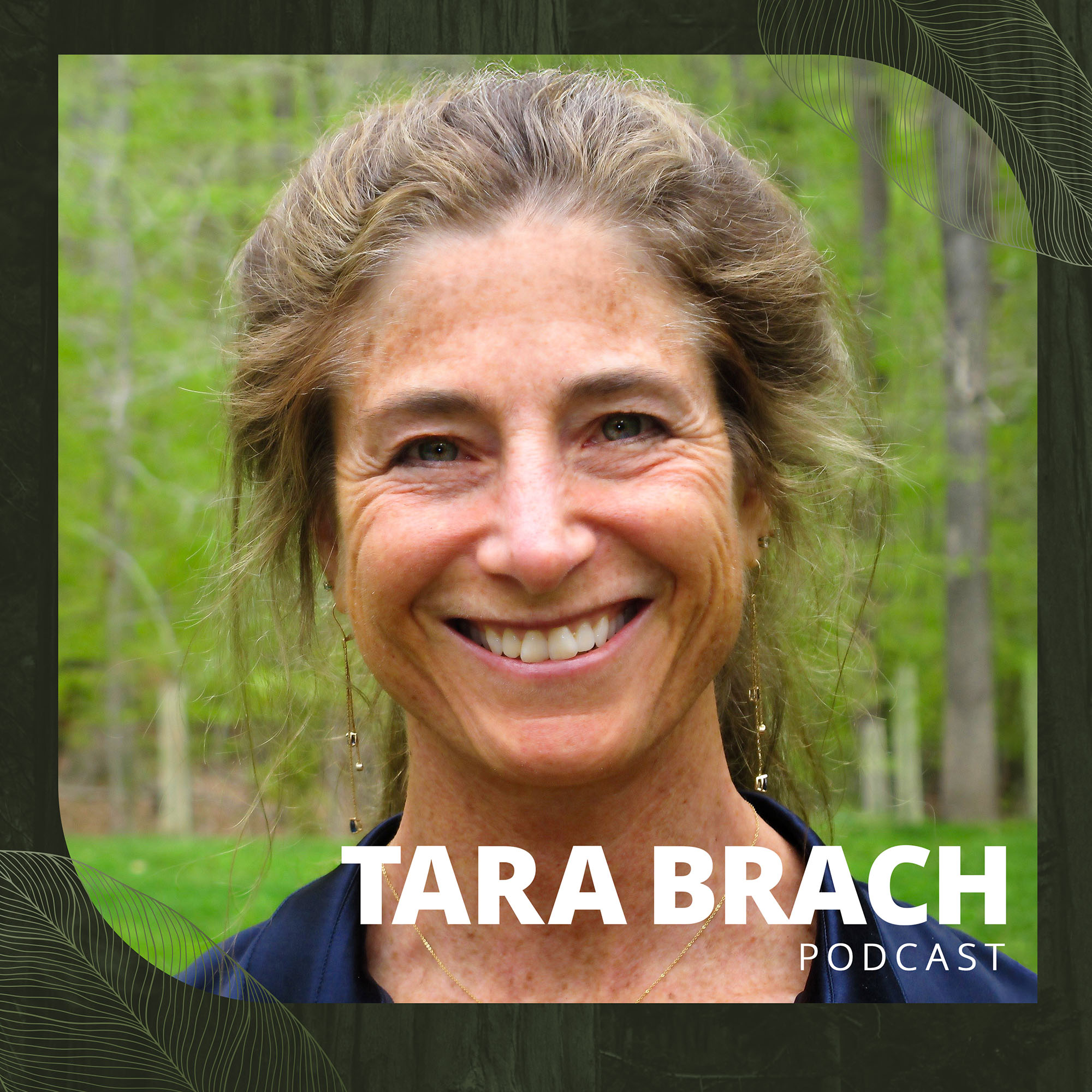
Tara Brach
Tara Brach
Align with Jenna Zoe: The Human Design Podcast
My Human Design
Returning with Rebecca Campbell
Rebecca Campbell
Manifestation Babe
Kathrin Zenkina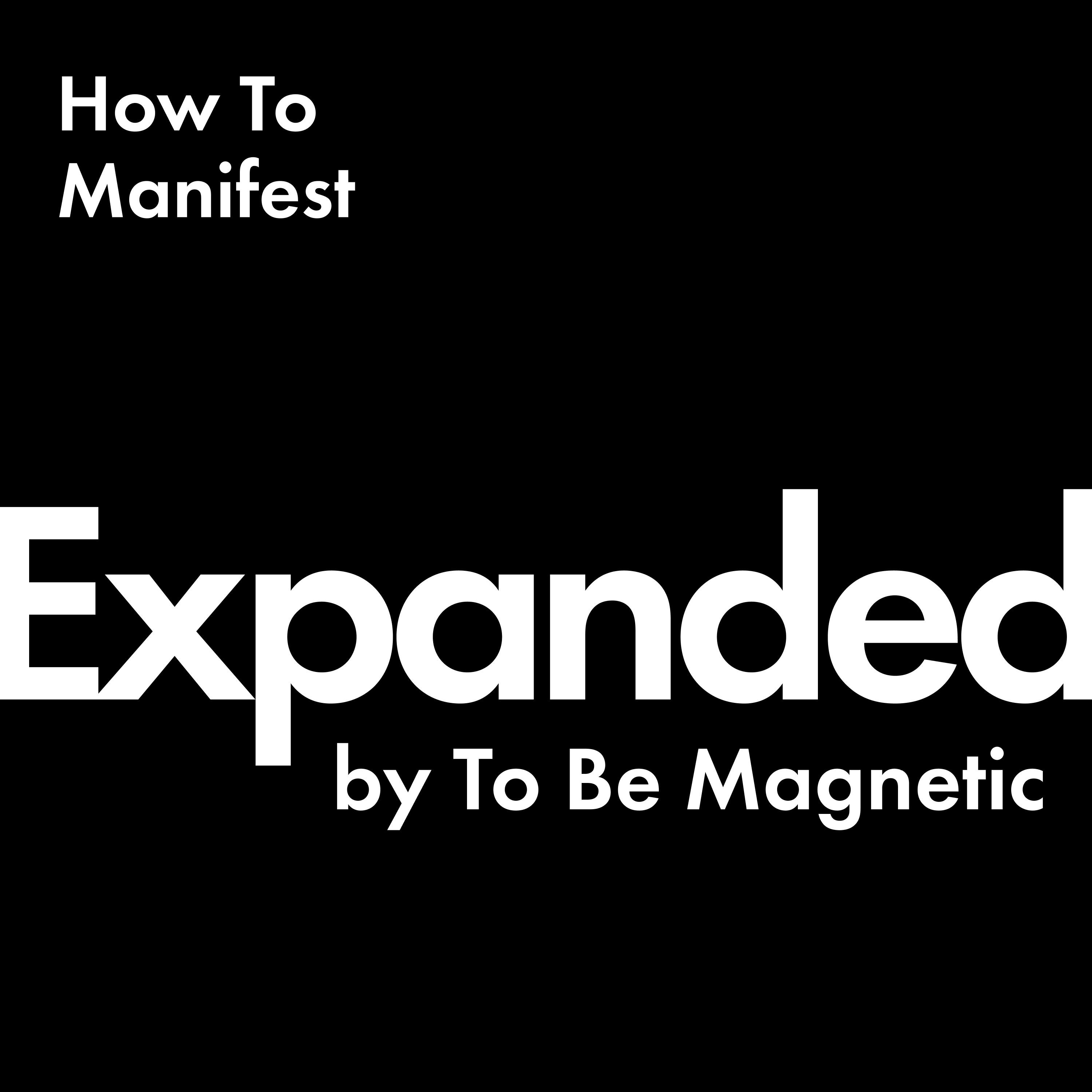
EXPANDED Podcast by To Be Magnetic™
To Be Magnetic™
Feel Better, Live More with Dr Rangan Chatterjee
Dr Rangan Chatterjee: GP & Author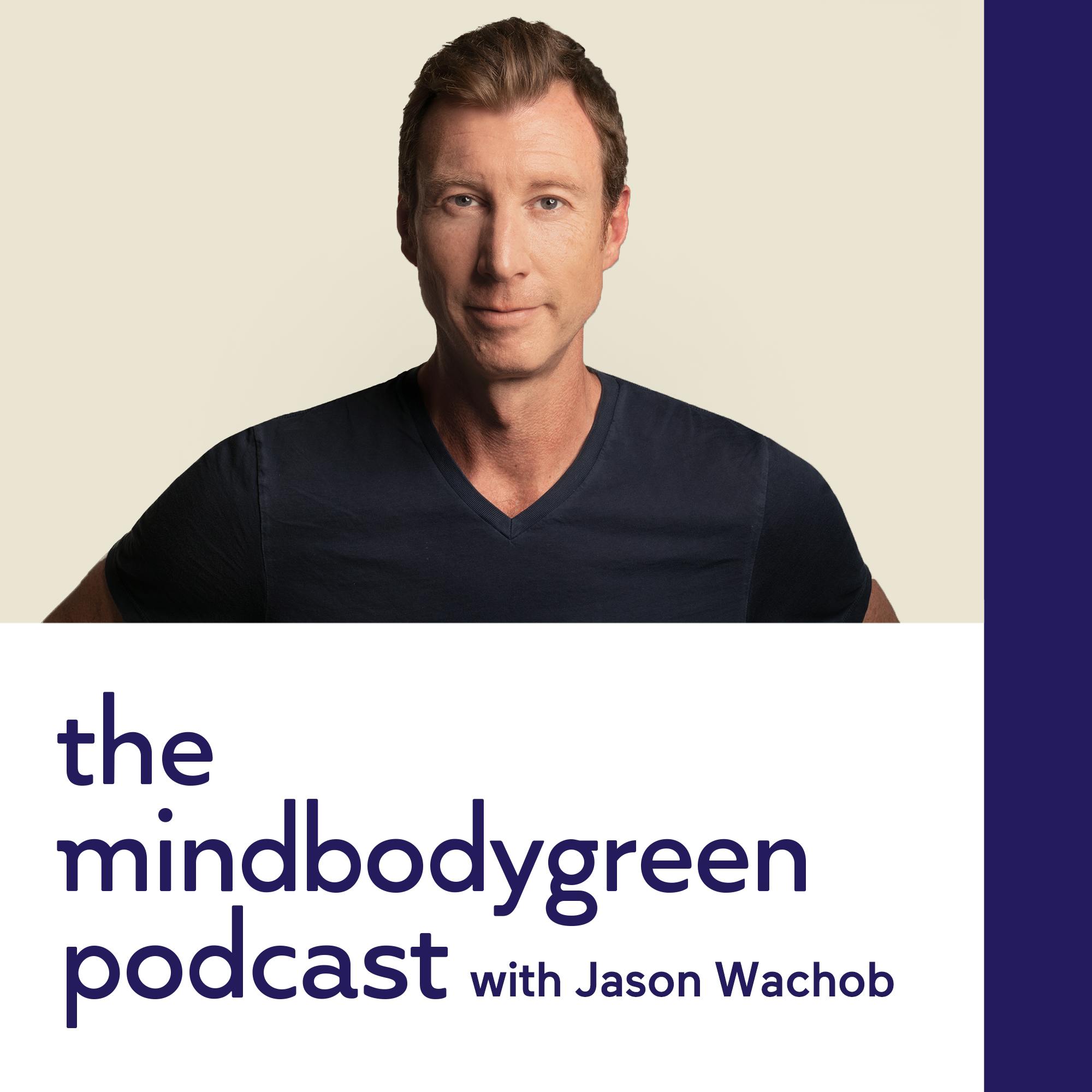
The mindbodygreen Podcast
mindbodygreen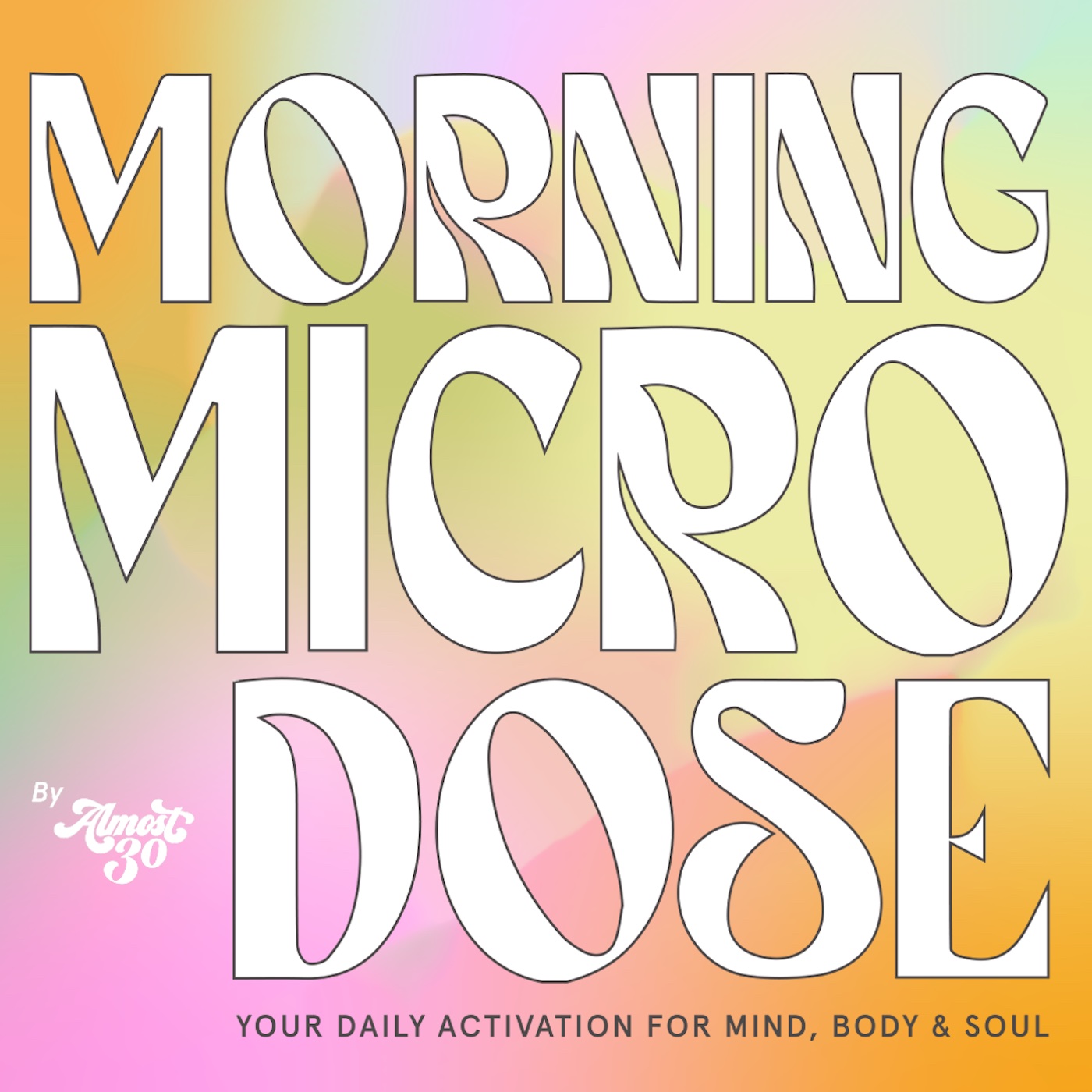
Morning Microdose
Almost 30
The Hannah Summerhill Show
Hannah Summerhill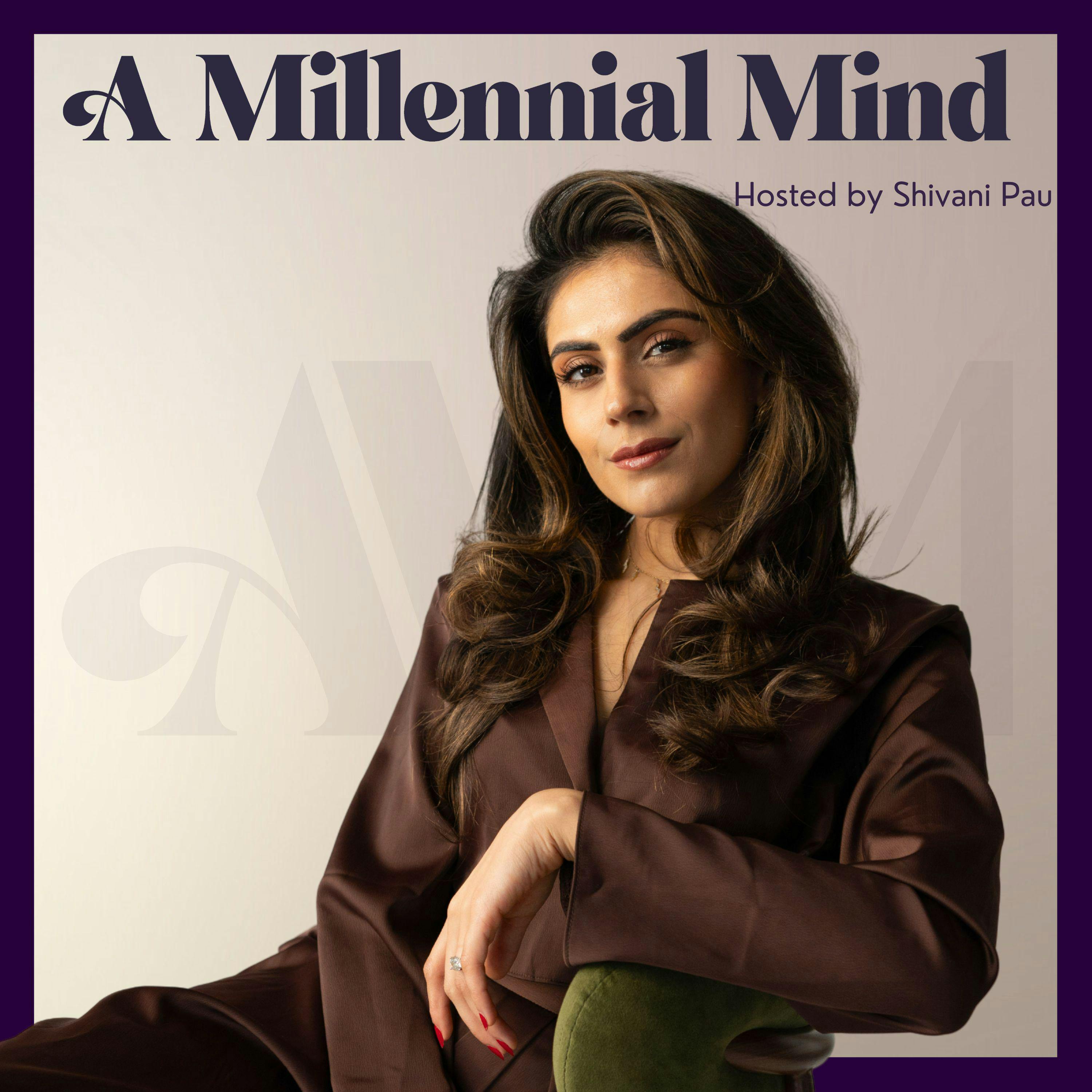
A Millennial Mind
Shivani Pau
Move With Heart
with Melissa Wood-Tepperberg